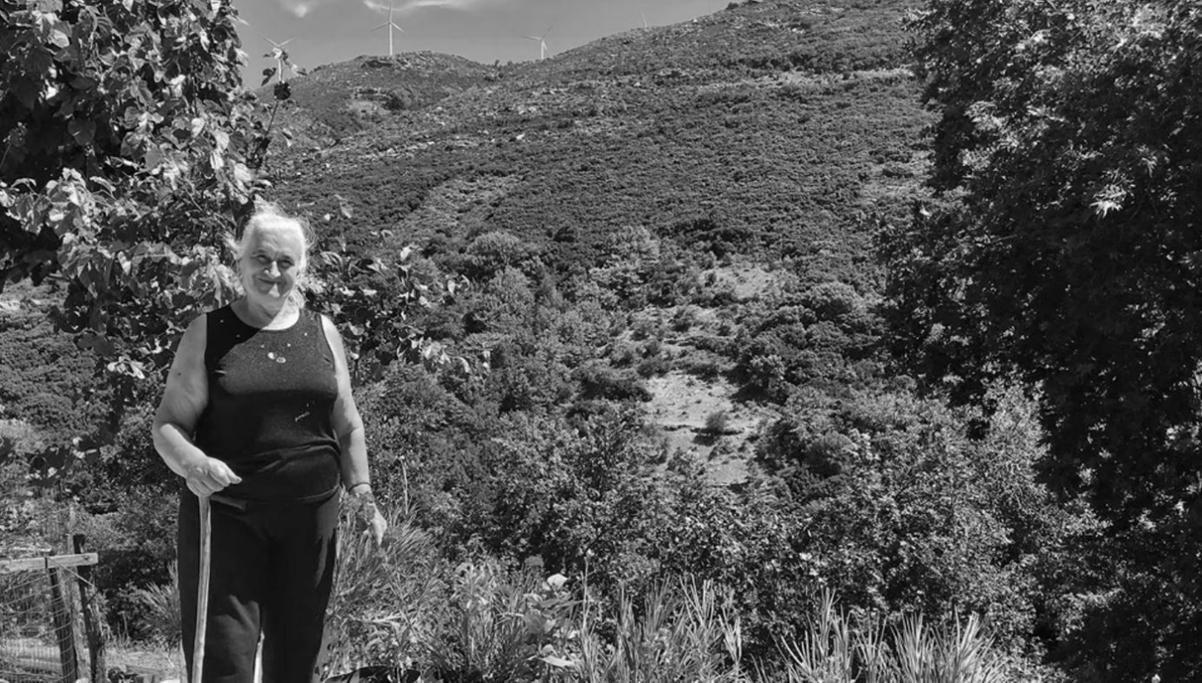
3 minute read
Saving Tongues
The language represents the way of thinking of a people. — United Nations (nd) the importance of language
Sounds of one, heard, but not understood by another. These sounds encase tradition and communication, stories and wisdom and knowledge. But what will it mean when they are gone? Tongues tied and steeped in history cease to speak, stopped by those that did not care to use them, save them. And with it a history is lost and silence falls on deaf ears and mouths unable to utter a single word of that language.
Advertisement
Situated off the eastern coast of Greece, lies a small island called Evia. The island’s mountainous landscape is enrobed with lush greenery and surrounded by the bluest of seas. While distinct valleys and ravines separate one mountain from the next, allowing a distinct geographical landscape to emerge, settlements line the steep slopes of the mountains. On Mount Ochi, a tiny village remains with only 37 inhabitants and within it, one of the rarest languages at risk of extinction in the world (Stein, 2017).
The language, known as sfyria, is a unique language made up of whistles. Informed by the landscape, the language has been in existence for the last two thousand years, used by shepherds to allow them to communicate over the long distances of the valleys due to the whistles being louder and allowing sound to travel further than ordinary speech. The whistles themselves are made from the enunciation of the Greek language, with certain letters and syllables corresponding to certain whistled frequencies (Stein, 2017). In this manner, those who understand and speak sfyria can create complex sentences to travel long distances, up to 4km, across the hillsides (Stein, 2017).
Sadly, now only 6 people remain who can speak the language. Many of the older generation of speakers have passed away or remain unable to whistle due to losing their teeth. This leaves the weight of the burden to keep the language alive on the younger generations. However, many of the younger generations born in Antia have moved away from the village to seek work elsewhere, leaving a depleted number of younger or able people there to continue the language’s legacy. The necessity for this unique language has changed over time; while in the past it was used as a means of survival for those in the hills, now there is an urgency to save and revive the language for cultural preservation purposes.
why do languages become extinct?
In addition to the spread of younger generations leaving a place where a language is spoken, other factors can also lead to the increased rarity or extinction of a language. Usually, the dominance of a more universally used language can mean that indigenous languages are less widely used. This problem has been exacerbated by increased globalisation which has meant that universal languages have infiltrated even the most remote locations on the planet (Kramer, 2000, p. 10). For indigenous people, they may prefer to use the universal language due to its modern appeal, or push their children to use it to ensure that they have better job prospects in the future (Fernando, Valijärvi and Goldstein, 2010, p. 48). In more unsafe territories, indigenous speakers may be victimised for speaking their native tongue making it unsafe to do so. This therefore means that if the universal language is prioritised, minority languages become increasingly under-used leading to their potential extinction.
I Not only is the preservation of a language arguably a human right, language acts to preserve the culture, identity and knowledge of those who speak them. As the oral language pre-dates the written language, with only one third of languages existing with a written system, there is information such as songs, poems and stories which can only be conserved through oral language itself (Nuwer, 2014). One may argue, why not translate said stories and poems into a language which is more better-known so that it can be preserved more easily? Although translation is one way in which information from a language can be archived, inevitably, this process could neglect the subtleties and nuances specific to that language, losing key information contributing to its meaning. Often there are words in one language which do not exist in another. For example the word ‘hygge’ in Danish means ‘a quality of cosiness and comfortable conviviality that engenders a feeling of contentment or well-being (regarded as a defining characteristic of Danish culture).’ (Hygge definitionGoogle Search, 2023). However, in English we do not posess the same word, only our equivalent definition for it. By allowing endangered languages to disappear, we risk losing ways of interpreting human behaviour and emotion (Nuwer, 2014).
Archiving languages is a means to preserving a language and ensuring that information is stored once a language’s oral existence becomes extinct, however, a more active approach can be employed prior to this to reduce the risk of extinction. Language maintenance and language revitalisation should be employed together in order to ensure the prosperity of a minority language. Language revitalisation
120 Composting is so hot seeks to increase the number of speakers and the domains in which the language is spoken, while language maintenance ensures that adequate support is given to ensure the language is still being spoken.
Language revitalisation and maintenance can be employed through the use of mother-tongue teachings, immersive education and intergenerational transmission. With these techniques in place, it is possible for an endangered language to be utilised used and cherished as part of traditional culture once more. In employing methods to keep endangered languages alive, we are showing a respect towards the language itself and the speakers of it, thus preserving cultural tradition, knowledge and stories with it for generations to come.






